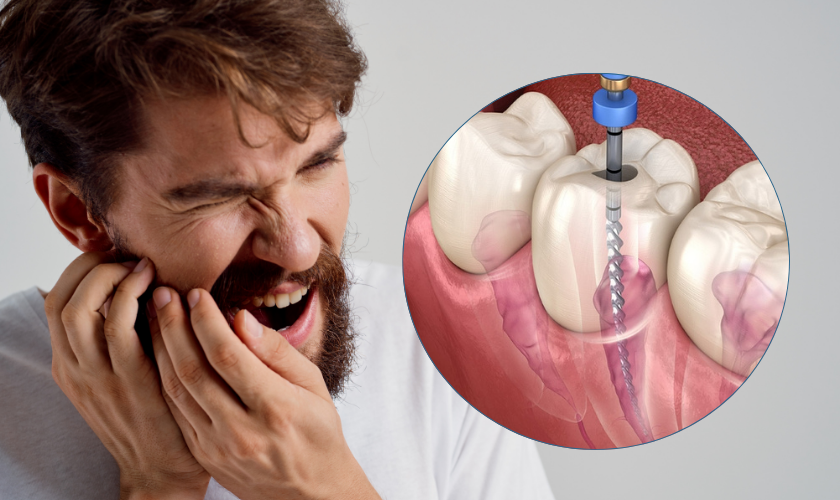
May 15, 2025
When it comes to dental procedures, few terms stir up as much anxiety as “root canal.” However, modern dentistry has transformed this once-dreaded treatment into a safe, effective, and often pain-relieving solution for saving teeth. If you’ve been searching for dental care near me or wondering when to visit the best dentist in Jaipur, this blog will help you understand everything about root canals before it’s too late.
A root canal is a dental procedure used to treat infection at the center of a tooth (the pulp). The pulp contains nerves and blood vessels, and when it becomes infected due to deep decay, cracks, or trauma, a root canal is necessary to clean, disinfect, and seal the tooth.
Instead of removing the entire tooth, the dentist removes the infected pulp and fills the space with a biocompatible material, preserving the tooth’s structure and function. This process prevents further infection and eliminates pain, making it a valuable option for maintaining oral health.
Several signs indicate that you might need a root canal:
Ignoring these symptoms can lead to tooth loss or the spread of infection, which could require more invasive procedures like dental implants near me.
Most root canals can be completed in one or two visits to the best dental hospital in Jaipur, depending on the severity of the infection and the tooth involved.
Contrary to common belief, root canal treatment is not painful. Modern techniques and anesthesia ensure that patients experience minimal discomfort during the procedure. Most people report feeling immediate relief from the pain caused by the infection.
Post-procedure, some tenderness is normal and can be managed with over-the-counter pain medications. If discomfort persists, it’s essential to follow up with the best dentist in Jaipur for evaluation.
Delaying a root canal can lead to serious consequences:
So, if you’re experiencing symptoms, it’s crucial to seek immediate help from professionals offering dental care near me.
For a successful root canal, choosing an experienced and trusted dentist is key. At the best dental hospital in Jaipur, you can expect:
Whether you need a root canal or are exploring options like dental implants near me, getting care from the best dentist in Jaipur ensures your long-term oral health.
Post-treatment care is essential to ensure proper healing and tooth longevity:
With proper care, a root canal-treated tooth can last a lifetime!
Root canals may sound intimidating, but they’re often the best solution to save your natural tooth and prevent more invasive procedures. The process is comfortable, safe, and effective with today’s advanced dental care.
If you’re dealing with persistent tooth pain or sensitivity, don’t wait for the problem to worsen. Search for dental care near me or schedule a visit at the best dental hospital in Jaipur to consult with the best dentist in Jaipur. Early treatment can save your tooth—and your smile.